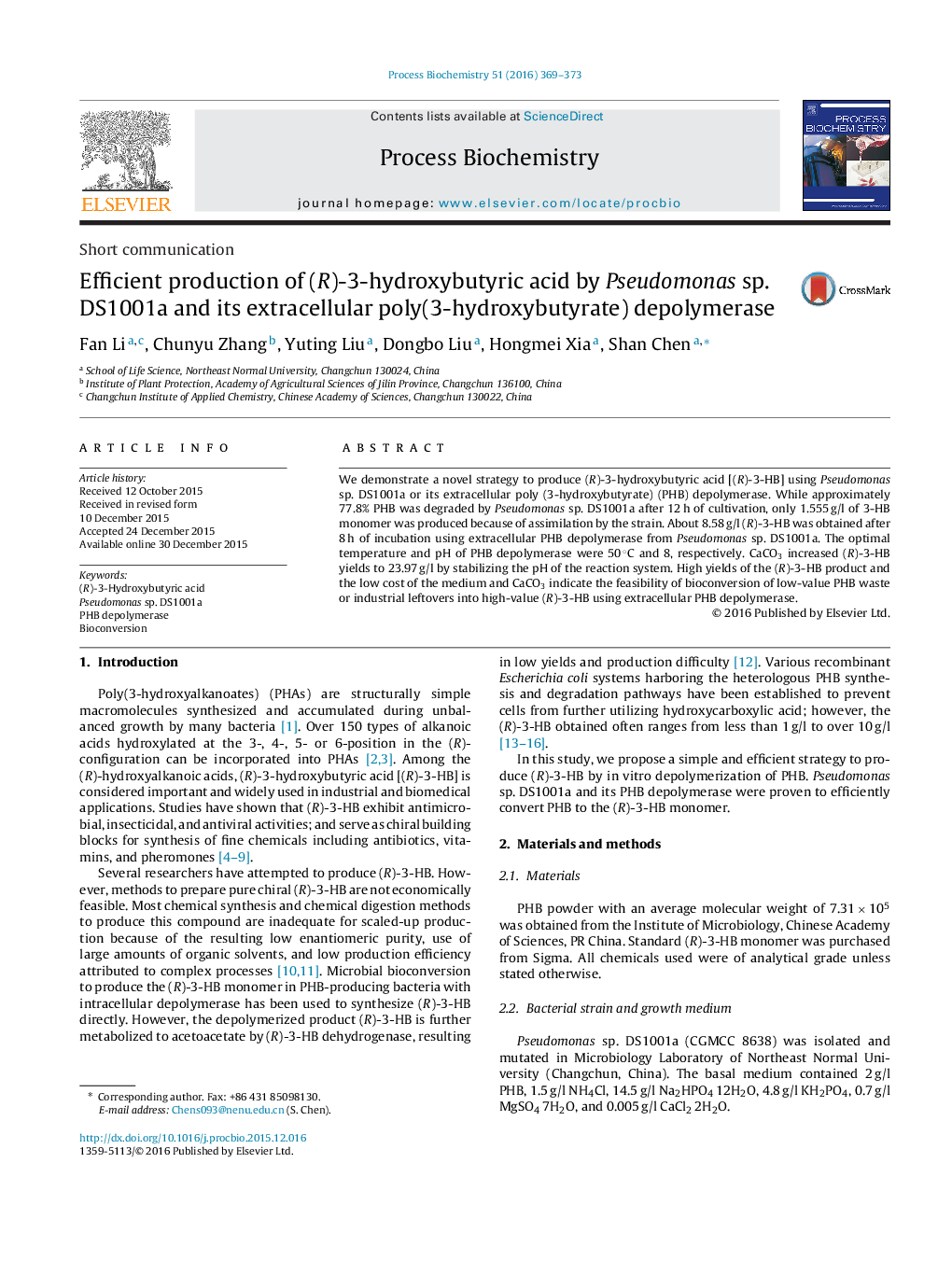| کد مقاله | کد نشریه | سال انتشار | مقاله انگلیسی | نسخه تمام متن |
|---|---|---|---|---|
| 34162 | 45007 | 2016 | 5 صفحه PDF | دانلود رایگان |
• An alternative strategy for production of (R)-3-hydroxybutyric acid was demonstrated.
• The strategy involved bioconversion by Pseudomonas sp. and its extracellular depolymerase.
• Yields of 0.130 g/l h and 1.073 g/l h were achieved by strain and crude enzyme, respectively.
• CaCO3 increased yields to 3 g/l h by stabilizing the pH of the reaction system.
We demonstrate a novel strategy to produce (R)-3-hydroxybutyric acid [(R)-3-HB] using Pseudomonas sp. DS1001a or its extracellular poly (3-hydroxybutyrate) (PHB) depolymerase. While approximately 77.8% PHB was degraded by Pseudomonas sp. DS1001a after 12 h of cultivation, only 1.555 g/l of 3-HB monomer was produced because of assimilation by the strain. About 8.58 g/l (R)-3-HB was obtained after 8 h of incubation using extracellular PHB depolymerase from Pseudomonas sp. DS1001a. The optimal temperature and pH of PHB depolymerase were 50 °C and 8, respectively. CaCO3 increased (R)-3-HB yields to 23.97 g/l by stabilizing the pH of the reaction system. High yields of the (R)-3-HB product and the low cost of the medium and CaCO3 indicate the feasibility of bioconversion of low-value PHB waste or industrial leftovers into high-value (R)-3-HB using extracellular PHB depolymerase.
We demonstrated a novel strategy to produce (R)-3-hydroxybutyric acid [(R)-3-HB] by microorganism or depolymerase in vivo. MS and HPLC assay of PHB hydrolysis product by Pseudomonas sp. DS1001a and its PHB depolymerase were carried out. The results show that (R)-3-HB monomer with a peak at m/z 103, rather than the dimer, trimer, or other oligomers, was detected in the water-soluble products (a and c). The HPLC chromatograms of the monomer product and (R)-3-HB standard matched perfectly (b and d). Yields of 0.130 g/l h and 1.073 g/l h were achieved by strain and crude enzyme, respectively. CaCO3 added in depolymerase increased (R)-3-HB yields efficiently; suggesting the bioconversions from low-valued PHB wastes or industrial leftovers to high-valued (R)-3-HB using extracellular PHB depolymerase is attractive.Figure optionsDownload as PowerPoint slide
Journal: Process Biochemistry - Volume 51, Issue 3, March 2016, Pages 369–373
